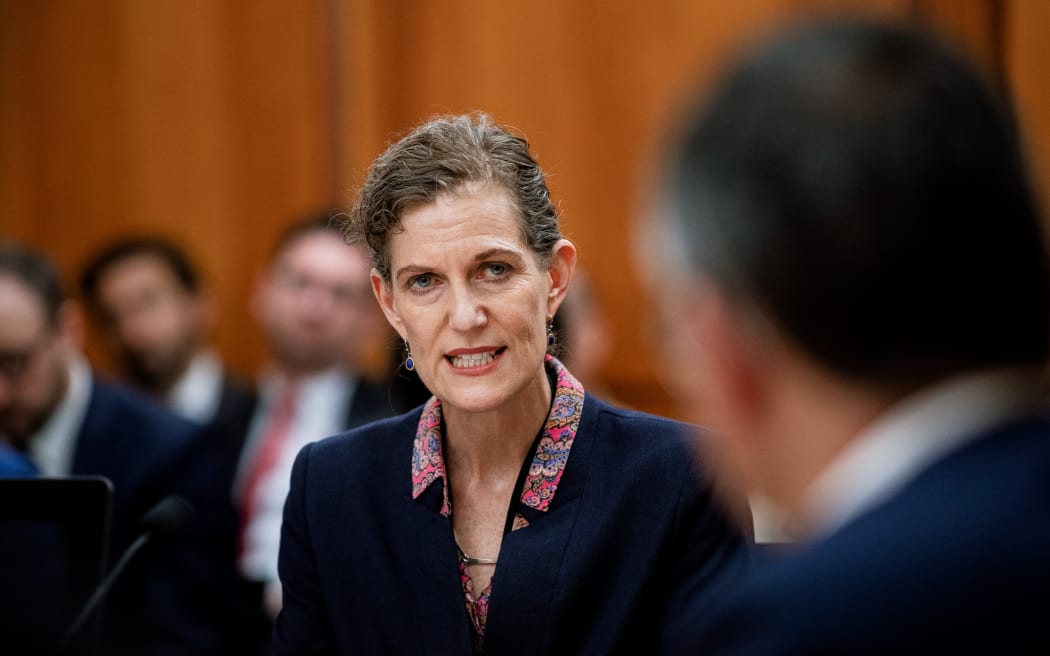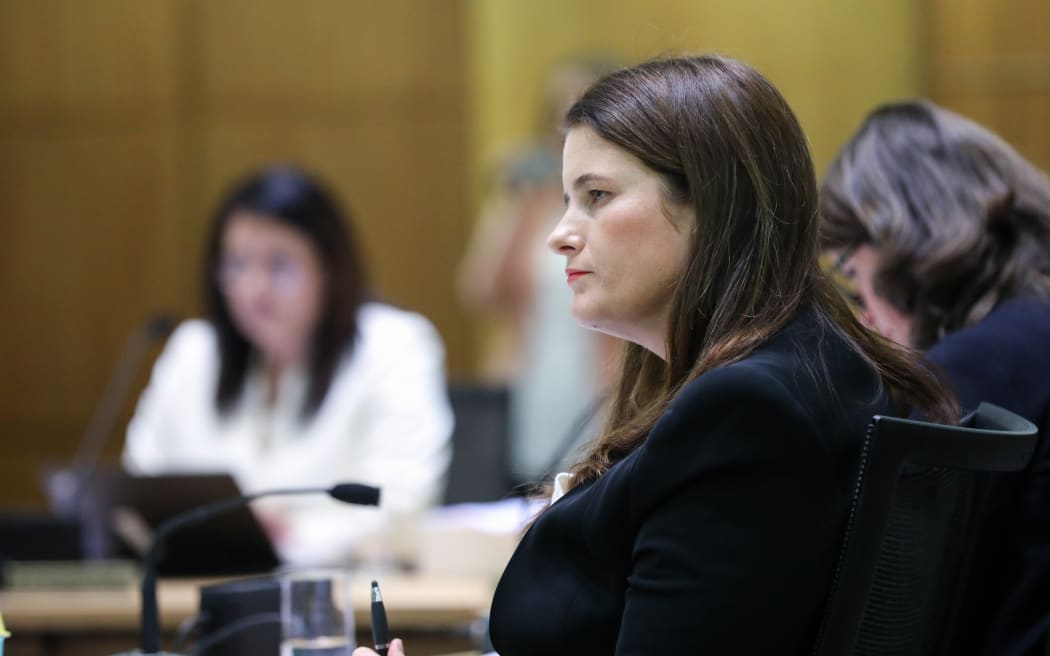It’s part of the job of MPs to be up to date with the latest national security threats, which is particularly necessary at a time of rapid technological and climate change, and turbulence in the international order.
The Intelligence and Security Committee, chaired by prime minister Chris Hipkins, has received a presentation from representatives of the national security sector on the National Security Long-term Insights Briefing published in March.

Rebecca Kitteridge - File Photo Photo: RNZ / Samuel Rillstone
Rebecca Kitteridge, who until recently was the country’s top spy, presented to the committee in her current role as Secretary of the Department of the Prime Minister and Cabinet.
“The ways in which New Zealand may experience more frequent and concurrent national security challenges will require both proactive and reactive responses,” she explained at the outset.
“We see broader global trends, such as increasing competition, technology change, climate change and future pandemics impacting and driving many of the future trends that we could face, threats and challenges such as cyber attacks, terrorism, violent extremism, disinformation and trans-national organised crime are of concern to both the national security sector and the public, as identified through the national security public survey and confirmed by more recent survey results.”
The briefing was produced independently of ministers and doesn’t comment on government policy.
‘Unpredictable outcomes’
Long-term Insights Briefings are a new concept here, and this also included a public survey and public consultation - these are useful because the flow of accurate information to the public is a particularly new area of focus.
“Over the next ten to fifteen years we see threats to our national security becoming more complex and linked, resulting in sometimes unpredictable outcomes,” Kitteridge told the committee.
“As a result, our national security system will continue to experience high demand, and working collaboratively with partners, such as through our international relationships, with communities and businesses, as well as sharing more information with the public on the role they can play is crucial to meeting future challenges."
According to the briefing report, in the next 10 to 15 years, the most significant risks to national security will be influenced by, and in some cases originate from, four key global trends:
• Increasing competition between countries, and a continued deterioration in the 'rules-based international order'.
• Technology change which will impact all aspects of life, creating transformational benefits and improving standards of living but also presenting new risks and challenges.
• Climate change impacting the availability of water, food, and habitable land - creating competition for scarce resources and changing migration patterns.
• The ongoing, shared and disruptive economic, social and political effects of COVID-19 and future pandemics.

National MP Nicola Willis in Select Committee Photo: VNP / Phil Smith
Public concern
“Trust and confidence in government is a theme explored through the briefing. We recognise this as critical for building social licence so we can respond and maintain our national security as a whole country,” Kitteridge said while underlining the role of the public.
The survey results in the briefing report found that New Zealanders are generally more worried about national security threats than the global country average, particularly when it comes to things like natural disasters, terrorism, hacking and misinformation.
The Secretary and chief Executive of Foreign Affairs and Trade, Chris Seed, said the value of the survey in the briefing was in presenting a view that decision-makers and senior public servants in this sector were both unaware of.
“That there was a sense that New Zealanders were not thinking about these range of issues, and yet the survey produced a different set of results,” he conceded.
Questions
The committee features some fairly senior MPs who all had questions for Kitteridge and Seed. National’s leader Chris Luxon and deputy leader Nicola Willis respectively asked how well prepared the country was for threats such as cyber attacks and violent terrorism like the Christchurch mosque shootings. The answers from Kitteridge indicate a level of preparation magnitudes higher than a few short years ago, although there’s still work to do.
Some threats are very difficult to anticipate. Hipkins asked whether New Zealand’s vulnerability around biosecurity, in the context of deliberate acts, was raised during discussions around terrorism. Kitteridge noted that different kinds of threats could cross over into each other’s category, and gave an example.
“Foot and mouth disease would be absolutely disastrous for New Zealand, but if it’s weaponised from somebody who wants to do NZ harm then you have that kind of intersection, and that is explicitly raised as something that should be considered in thinking about our national security,” she replied.
The Green party co-leader James Shaw asked about how well prepared the national security sector was for a ‘Black Swan event’, or something that doesn’t fit a set pattern, which could be highly disruptive. There wasn’t a lot that they could say.
“The way in which we looked at it was not to predict the future and to determine what events might happen, but rather to consider the trends that would impact the context within which we would have to respond to the threats,” said the Acting Director National Intelligence and Risk Coordination, Natalie Baker.
Outlooks
The briefing imagined possible global futures that could cause security threats, ranging from the optimistic all the way to utter mayhem.
Two of the outlooks were, in the words of committee member Gerry Brownlee, a bit “bleak”. And the following line also caught the eye of Willis as being “a pretty dark, almost dystopian statement”:
'New Zealand is more polarised than ever, trust in each other, in experts, and in the institutions of state is diminished, threatening the foundations of our liberal democracy.'
Willis asked what was driving this kind of outlook and was assured by Kitteridge and Seed that it was a hypothetical scenario, testing public perception about the range of consequences regarding threats. But it’s clear the national security sector is focussed on preparing for the worst, while hoping for the best, or something resembling the least bad.
Being across the range of threats is one important step in preparation. In that sense the briefing provided the committee plenty of food for thought, and in the age of mis- and dis-information it has made clear that ensuring more open and accessible information for the public is a priority.

